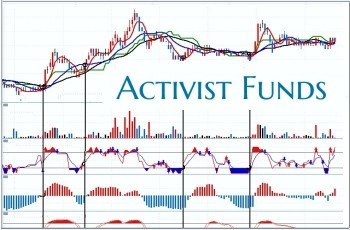シンクタンクからの眼 2022年8月18日
アクティビストは誰の味方なのか?The Two Faces of Activist Funds

アクティビストは誰の味方なのか?二つの顔を持つアクティビストファンド
アクティビストファンド、いわゆる物言う株主は、企業に対して積極的に経営改善を要求する投資家として注目されています。一方で、彼らの活動はしばしば賛否両論を引き起こします。一部の人々はアクティビストを企業のガバナンスを改善する救世主とみなす一方で、別の人々は短期的利益を追求する侵略者として批判します。このような二面性を持つアクティビストファンドについて論じる際、彼らが誰の味方なのかという本質的な問いに迫る必要があります。
アクティビストの第一の顔は、株主の味方です。アクティビストファンドは、主に企業の経営陣に対し株主利益を最大化するよう圧力をかけます。このアプローチは、次のような点で株主にとって有益とされています。
先ずは、ガバナンス改善の推進です。アクティビストは、不採算事業の売却や経営効率の改善、株主還元の強化(配当増額や自社株買いなど)を要求します。これにより、企業価値が向上し、株主全体が恩恵を受ける可能性があります。例えば、エリオット・マネジメントなどの著名なアクティビストは、多くの企業に対して構造改革を促し、企業価値を劇的に高めた事例が知られています。
次は、経営の透明性の向上に役立ちます。アクティビストが活動することで、企業の経営陣は投資家への説明責任を果たさざるを得なくなり、透明性が高まります。これは、個人投資家や年金基金など長期的な利益を求める株主にとって特に重要です。
アクティビストの第二の顔は、短期的利益を追求する投機家という顔です。アクティビストファンドが短期的な利益を追求するあまり、企業やその従業員、さらには社会全体に悪影響を及ぼす可能性も指摘されています。
よく指摘されるのは、短期志向によるネガティブな影響であります。アクティビストが要求する施策は、しばしば短期的な株価上昇を狙ったものです。たとえば、大規模な自社株買いやコスト削減が過度に進むと、研究開発投資や従業員への投資が削減され、長期的な競争力を損なうリスクがあります。
そして、従業員やステークホルダーへの影響も心配されています。不採算部門の切り離しやリストラが行われることで、従業員の雇用が脅かされるケースもあります。また、地元経済や取引先など、他のステークホルダーに対しても悪影響が及ぶ可能性があります。
更には、利益偏重型の行動が不安視されています。アクティビストの多くは、自分たちの保有株が値上がりすれば売却して退出するため、株主の全体利益ではなく、自分たちの利益を最優先するとの批判もあります。
アクティビストファンドは、まさに両刃の剣といえると思います。アクティビストが誰の味方かを判断するには、その活動が株主、経営陣、従業員、さらには社会全体にどのような影響を与えるかを総合的に評価する必要があります。このような意識をもちながら、アクティビストを味方としての位置づけすることも可能なことだと思います。
もちろん、短期投機家としての顔が強い場合には、自らの利益を最優先し、企業や社会に深刻なダメージを与えるような行動を取るアクティビストは、株主やステークホルダー全体の利益に反する存在と見なすべきでしょう。
要するに、アクティビストファンドの提案が、企業の長期的発展を目指しているのか、単なる株価の吊り上げを目的としているのかを見極める投資家の目が必要です。一方、企業側も株主還元に積極的に取り組むことで、アクティビストファンドのターゲットとなるリスクを減らすべきです。収益性の高い投資機会があればそれを活用すべきですが、それがない場合は保有資金を株主に還元するのが理にかなっていることです。
総じていうと、アクティビストファンドが誰の味方であるかは、一概には言えません。彼らが株主全体の利益を追求し、企業の持続可能な発展に寄与するならば、経営改革の強力な推進者として評価されるでしょう。しかし、短期的な利益のために企業やステークホルダーに悪影響を及ぼす場合は、その行動が問題視されるべきです。アクティビストと企業、社会が共存できる持続可能な枠組みを模索することが、これからの重要な課題となるでしょう。
未来志向のアクティビズムは、責任ある投資の可能性を追求することであると思います。アクティビストが持つ二面性を克服するためには、彼らが短期利益だけでなく、長期的な企業価値の創造に目を向けることが重要です。近年では、ESG(環境・社会・ガバナンス)を重視する責任あるアクティビズムも注目されています。このようなアプローチを取るアクティビストは、単なる利益追求者ではなく、持続可能な社会と経済の実現に貢献するパートナーとして評価されるでしょう。
(甲賀啓一、JGRA学会顧問、元野村証券GM)
Who is Activists Siding With? The Two Faces of Activist Funds
Activist funds, often referred to as "activist shareholders," are investors who actively demand improvements in corporate management and have garnered significant attention. However, their activities frequently spark polarized opinions. Some view activists as saviors of corporate governance, while others criticize them as predators pursuing short-term gains. To discuss activist funds with their dual nature, it is essential to address the fundamental question: Whose side are they on?
The first role of activists is that of allies to shareholders. Activist funds primarily put pressure on corporate management to maximize shareholder value. This approach can benefit shareholders in several ways.
First, activists drive improvements in governance. They often demand measures such as divesting unprofitable businesses, enhancing management efficiency, and increasing shareholder returns through actions like dividend hikes or stock buybacks. These efforts can lead to improved corporate value, benefiting shareholders as a whole. For instance, renowned activists like Elliott Management are known for pushing structural reforms in many companies, dramatically increasing their corporate value.
Second, they help improve management transparency. Activist activities compel corporate executives to be accountable to investors, thereby enhancing transparency. This is particularly valuable for long-term shareholders, such as individual investors or pension funds, who prioritize sustained returns.
The second role of activists, however, is that of speculators pursuing short-term gains. Critics argue that in their quest for immediate profit, activist funds can negatively impact companies, employees, and even society at large.
One frequently mentioned concern is the adverse effects of short-termism. The measures demanded by activists often aim at short-term stock price increases. For example, excessive stock buybacks or cost-cutting measures can reduce investments in research and development or workforce spending, potentially undermining a company's long-term competitiveness.
Moreover, the impact on employees and stakeholders is another area of concern. Actions such as spinning off unprofitable divisions or restructuring may threaten employee jobs. Additionally, local economies and business partners could face adverse effects.
Furthermore, activists are often criticized for their profit-focused behavior. Many activists sell their shares and exit once the stock price rises, prioritizing their own interests over the overall benefit of all shareholders.
Activist funds can thus be described as a double-edged sword. Determining whose side activists are on requires a comprehensive assessment of how their activities impact shareholders, management, employees, and society as a whole. With this awareness, it is possible to position activists as allies.
However, when their role as short-term speculators takes precedence, activists who prioritize their interests and inflict significant damage on companies or society may be seen as antagonistic to the broader interests of shareholders and stakeholders.
Ultimately, investors must discern whether the proposals made by activist funds aim for a company's long-term growth or are merely designed to inflate stock prices. On the other hand, companies should actively engage in shareholder returns to mitigate the risk of becoming activist fund targets. If profitable investment opportunities exist, they should pursue them; otherwise, returning excess funds to shareholders is a reasonable approach.
In conclusion, it is impossible to definitively say whose side activist funds are on. If they pursue the interests of all shareholders and contribute to sustainable corporate development, they may be evaluated as powerful advocates of management reform. However, if their actions harm companies and stakeholders for short-term profit, their behavior should be scrutinized. The challenge ahead is to seek a sustainable framework that allows activists, companies, and society to coexist.
Future-oriented activism is about pursuing the possibilities of responsible investment. To overcome the duality of activist funds, it is crucial for them to focus not only on short-term profits but also on creating long-term corporate value. In recent years, responsible activism that emphasizes ESG (environmental, social, and governance) factors has gained attention. Activists adopting such approaches are not merely profit-seekers but can be regarded as partners contributing to the realization of a sustainable society and economy.
(Keiichi Koka, Advisor to the JGRA Research Society, former GM of Nomura Securities)




